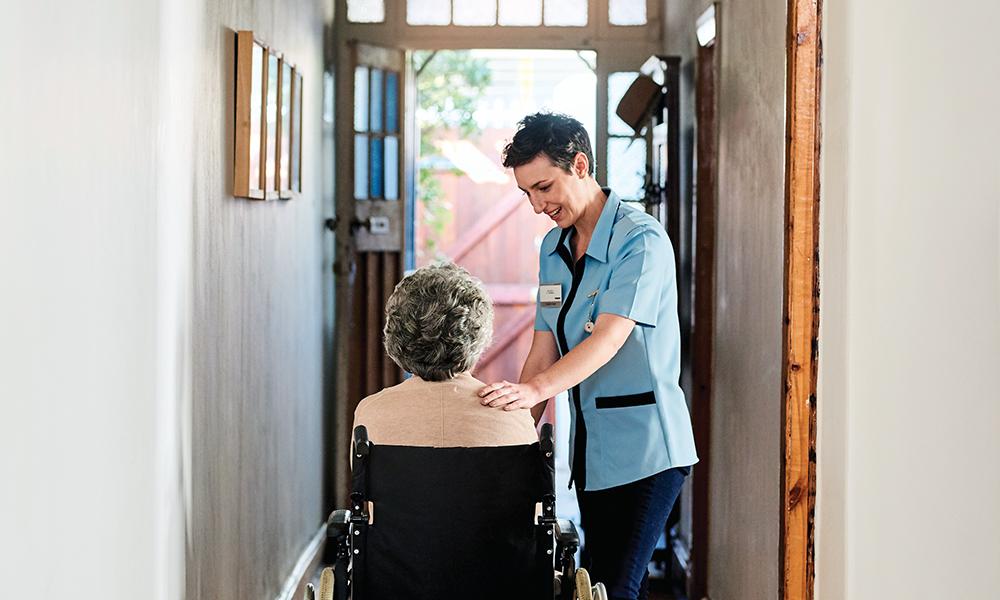
We Are Called to Offer God’s Closeness
Growing up, my brother and I were extremely close to our grandmother since we lived with her for a major portion of our formative years. When I was in high school, she was diagnosed with cancer. I remember being terrified of losing her. I prayed fervently that she would get better. She underwent surgery, and, thanks be to God, she recovered. Fast forward to my late 20s; my grandmother’s health began to deteriorate. She was in the hospital for a while, and, close to the end, I remember asking aloud, “I wonder if she knows it is OK to go?” Although she was not able to communicate, a tear rolled down her face.
Growing up, my brother and I were extremely close to our grandmother since we lived with her for a major portion of our formative years. When I was in high school, she was diagnosed with cancer. I remember being terrified of losing her. I prayed fervently that she would get better. She underwent surgery, and, thanks be to God, she recovered. Fast forward to my late 20s; my grandmother’s health began to deteriorate. She was in the hospital for a while, and, close to the end, I remember asking aloud, “I wonder if she knows it is OK to go?” Although she was not able to communicate, a tear rolled down her face.
If I am being honest, I have to admit that I have always felt guilty about those words. The tear made me feel as though she sensed she had become a burden. Naturally, the last thing I wanted at the time was to lose her, but looking back, the spontaneous thinking out loud must have arisen from my strongly held belief that Heaven is our ultimate home.
I share this story because this issue is essentially about suffering and how we participate in that suffering. Originally, this issue was intended to focus solely on hospital ministry; however, as it progressed, it was apparent, at least to me, that hospital ministry is, at its root, the same as ministry to the homebound, the elderly, the weak, or the vulnerable. Pastoral ministry, in all its forms, is ministering to the suffering in our midst.
As I have grown older, I have struggled with the reality of suffering, for even Pope St. John Paul II, in his message announcing the institution of the World Day of the Sick in 1992, referred to pain and illness as a great mystery. He went on to explain, however, that suffering “accepted and borne with unshakeable faith, when joined to those of Christ, take on extraordinary value for the life of the Church and the good of humanity.”
Sadly, that value is oftentimes ignored or even rejected because it requires that the dignity of human life be acknowledged. In the words of Pope Francis, the old, weak, and sick are “placed in the corner of existence.”
Christ never promised a life free from suffering. While it may be impossible for humanity to eradicate suffering, our own Bishop Raica reassures us that we have the opportunity to be redeemed by it. He insists, “Visiting and being present to the sick, elderly, and homebound represents the presence of Christ and the consolation of the Church, letting them know that they are not alone and that there is hope.”
It is my prayer that this issue will embolden the sharing of God’s closeness, unveiling the beauty of suffering as a pilgrimage, for all involved, to the arms of our Lord and Savior.
